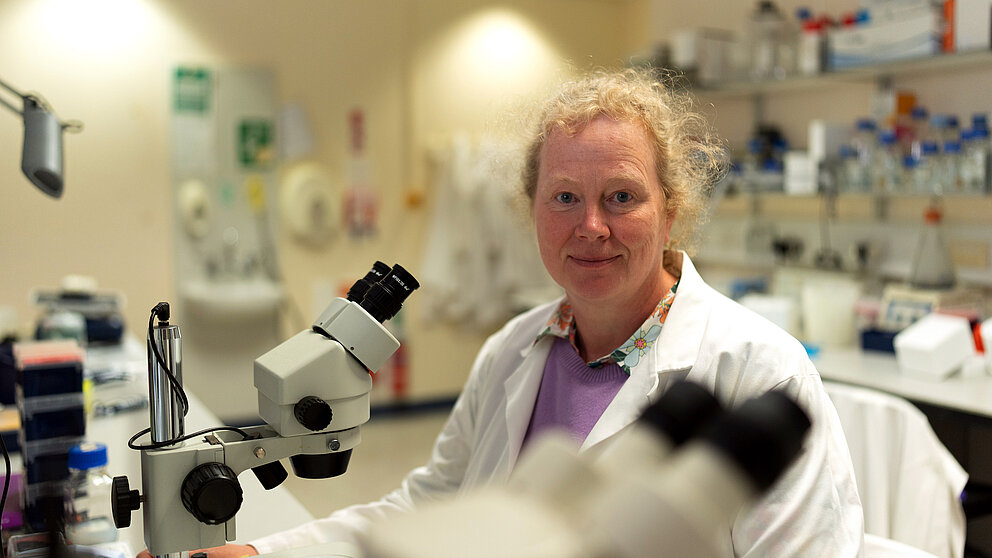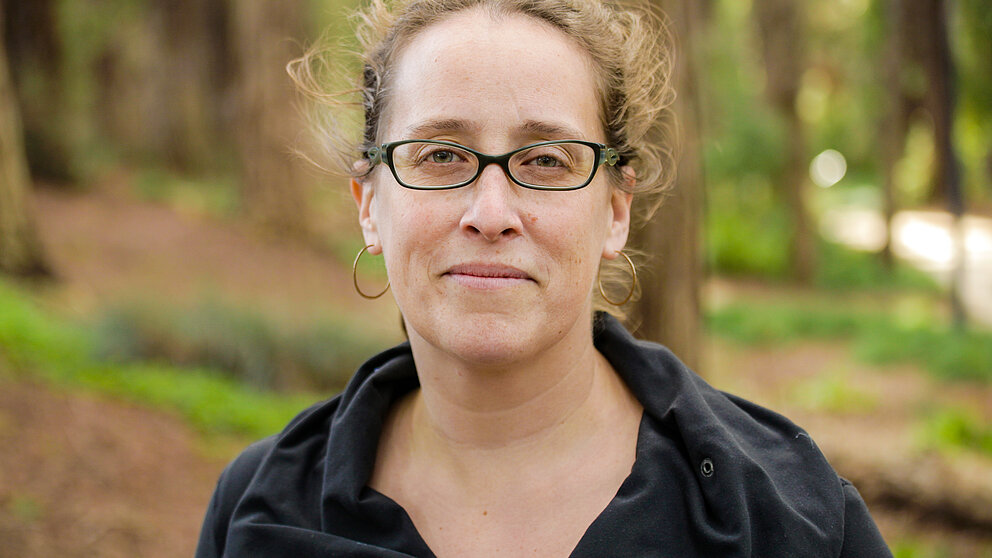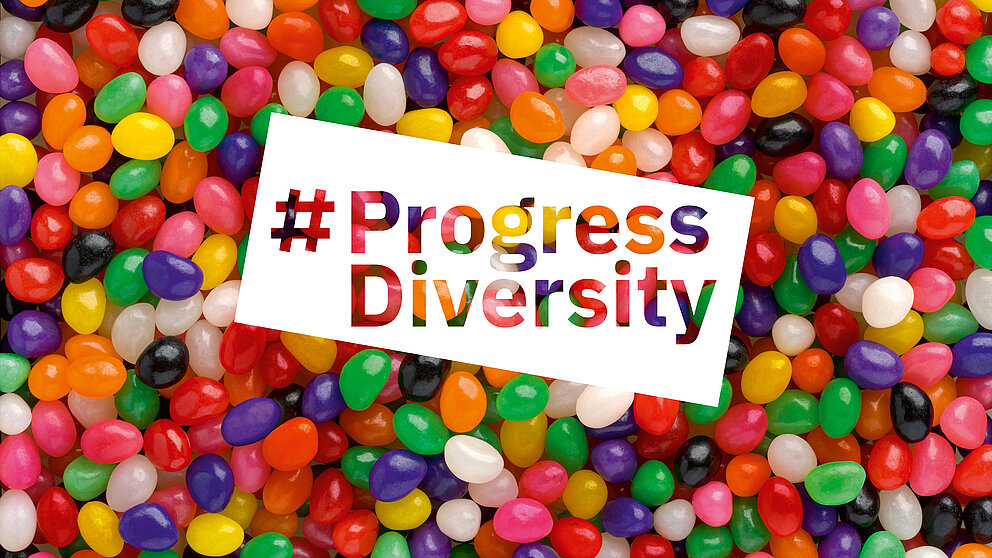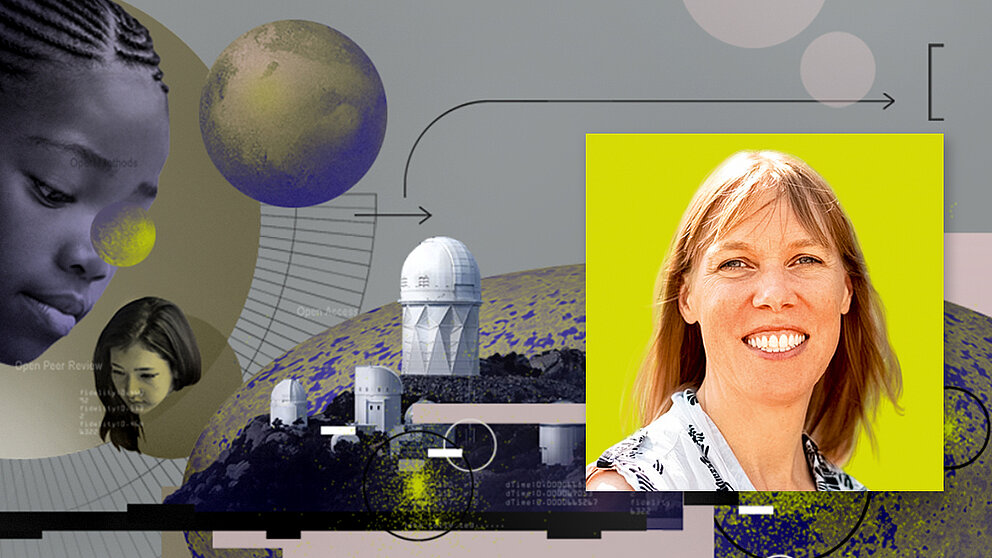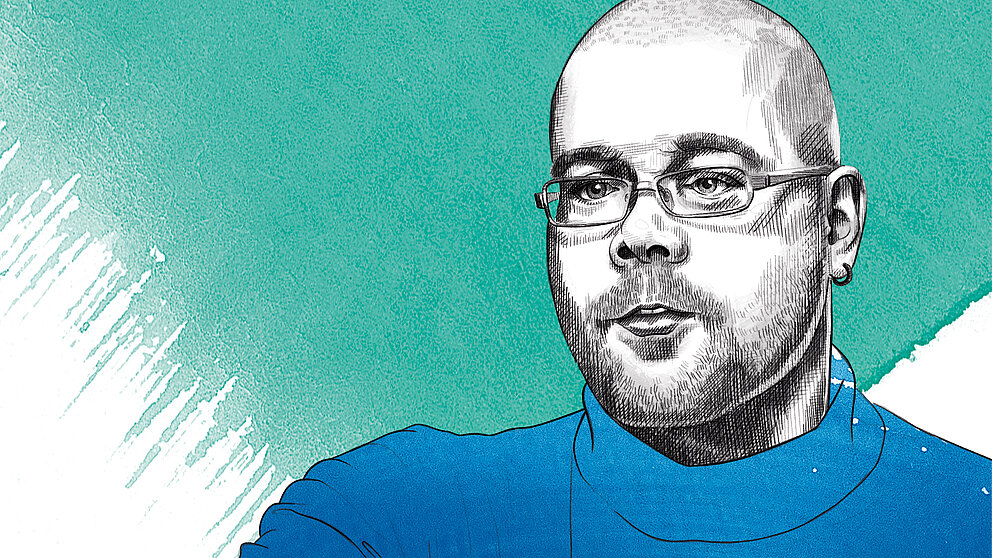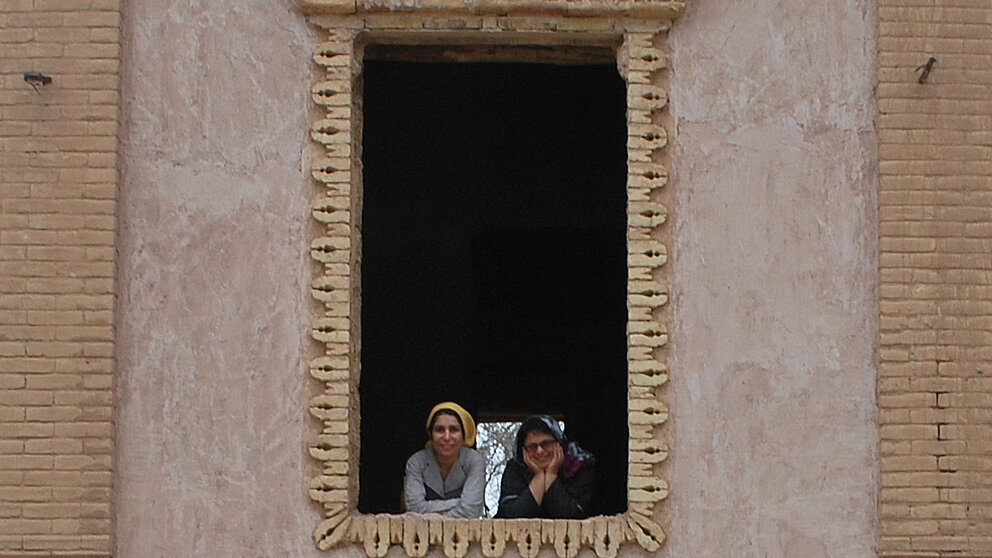Jump to the content
- {{#headlines}}
- {{title}} {{/headlines}}

Contact
Press, Communications and Marketing
Tel.: +49 228 833-144
Fax: +49 228 833-441
presse[at]avh.de
Excellence through diversity
In its role as a science funding organisation, the Foundation connects outstanding researchers from more than 140 countries and every conceivable discipline and subject with specialist colleagues in Germany. We are only too aware that the prerequisites for excellence and the conditions under which research is conducted and scientific potential can develop vary greatly around the world.
"For us, excellence and diversity are indivisible."
In 2021, the Foundation’s Agenda for lived diversity created a framework for actively promoting our aim of driving diversity in the science system. The Agenda seeks to ensure that diversity becomes an even clearer focus of all fields of action. From our selection, funding and communication activities through to administrative action, the Humboldt Foundation monitors its work systematically and continuously for equality of opportunity and accessibility. We also pool the expertise of researchers who study diversity topics in our worldwide network. At the Foundation, too, we aim to embed diversity even more firmly in our organisational culture both with regard to the culture of work, leadership and staff recruitment as well as to an accessible, inclusive infrastructure.
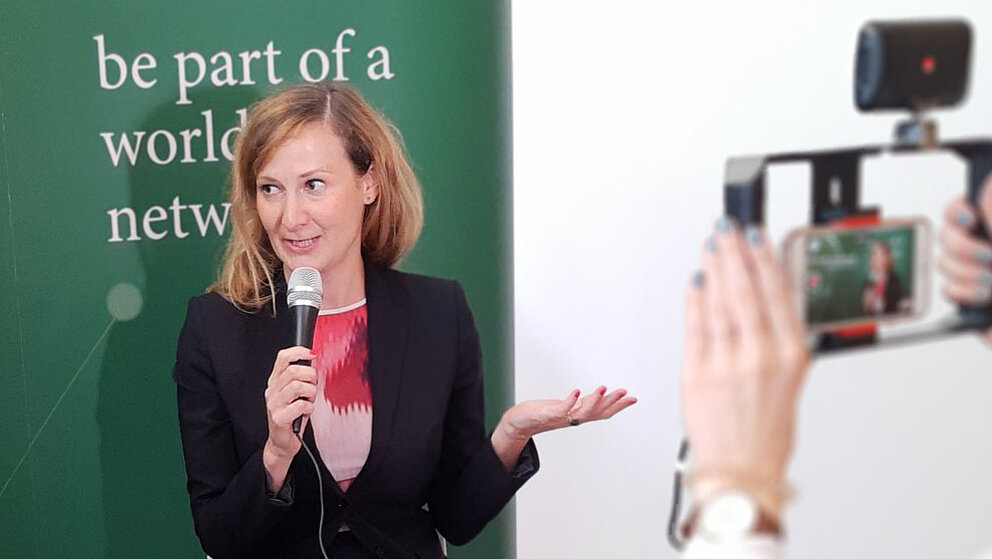
Diversity in selection and sponsorship
To increase diversity and equality of opportunity internationally, the Foundation also strives to break new paths in promoting talent. Humboldt Scouts, such as Islam scholar Johanna Pink who has managed to recruit specific linguistic and regional expertise for her research team, make our network more diverse:

In all the Humboldt Foundation’s sponsorship programmes, moreover, equality of opportunity in the selection process can be enhanced by disclosing personal circumstances. This means a candidate’s concrete living situation can flow into a fair assessment of their scientific performance. It may, for example, be possible to recognise absences due to various disabilities, illness or caring for next-of-kin and children. The Humboldt Foundation provides advice on individual situations.
Evaluation
The Humboldt Foundation is particularly keen to achieve an appropriate share of women researchers in the Humboldt Network. Gender monitoring regularly records the distribution of female and male researchers in the Foundation’s sponsorship programmes. We also monitor the hurdles facing women in academic careers and explore ways of removing them. How many women researchers are there worldwide who are internationally mobile and could potentially be recruited for a research stay in Germany? What encourages them to be internationally mobile? And what stops them from doing research elsewhere in the world? On behalf of the Alexander von Humboldt Foundation, the CEWS Center of Excellence Women and Science at the GESIS Leibniz Institute for the Social Sciences has explored potential and challenges.
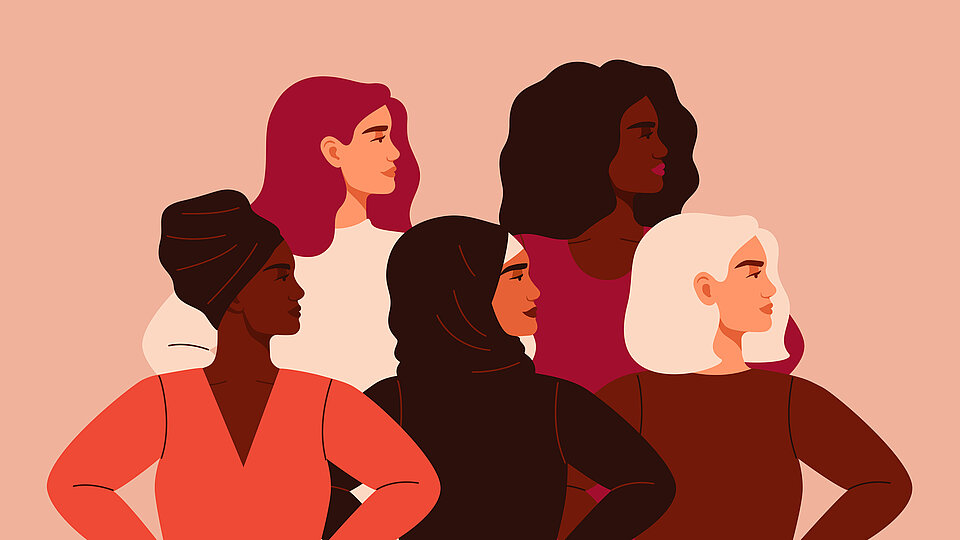
Work and family in harmony: a conscious organisational culture
For the strategic design of its HR policy regarding families and phases of life, the Humboldt Foundation has been awarded the “audit berufundfamilie” certificate for the second time. The Foundation’s achievement reflects its successful, staff-friendly implementation of conditions for combining work and family life.
Diversity in language, communications and actions
Even though there is a lot of talk about diversity in science and research, it is by no means a reality everywhere. This is the message contained in the personal reports of Foundation sponsorship-recipients all over the world. In 2021, the Humboldt Foundation launched a campaign on the topic of diversity in science. The #ProgressDiversity edition of Humboldt Kosmos, the accompanying analyses as well as activities on Twitter sent signals and launched discussions.

#ProgressDiversity
With its #ProgressDiversity campaign, the Humboldt Foundation is working to foster diversity in science and research. The latest edition of the Foundation’s magazine Humboldt Kosmos is dedicated to the topic.
The Humboldt Foundation is convinced that a diversity of perspectives is a prerequisite for excellence. For us, excellence begins with registering diversity in language.
Moreover, we also share ideas with our partners worldwide in various dialogue and collaborative formats addressing global challenges and opportunities for promoting diversity. Partners include the Alliance of Science Organisations and intermediary organisations for foreign cultural and educational policy in the context of (inter)national symposia. The panel discussion “Diversity drives excellence: rethinking academic potential in higher education” (2 March 2023) in cooperation with Fulbright Germany and the British Council is one example, as is the sharing of ideas at the Gender Summit.
Alliance Organization Inclusion Initiative
The Humboldt Foundation is actively involved in the implementation of the “Initiative Inclusion” by the Alliance of Science Organisations. Headed by the Fraunhofer-Gesellschaft and the Max Planck Society, the Alliance has launched a campaign to break down visible and invisible barriers and actively promote the participation and development opportunities of people with disabilities in science and research.
Diversity in the Humboldt Network
The more heterogeneous the researchers in a team, the more creative the results: this is a fact now generally acknowledged. Diversity in science has become an important catchphrase – and every country interprets it differently. A journey round the world discovering diversity.
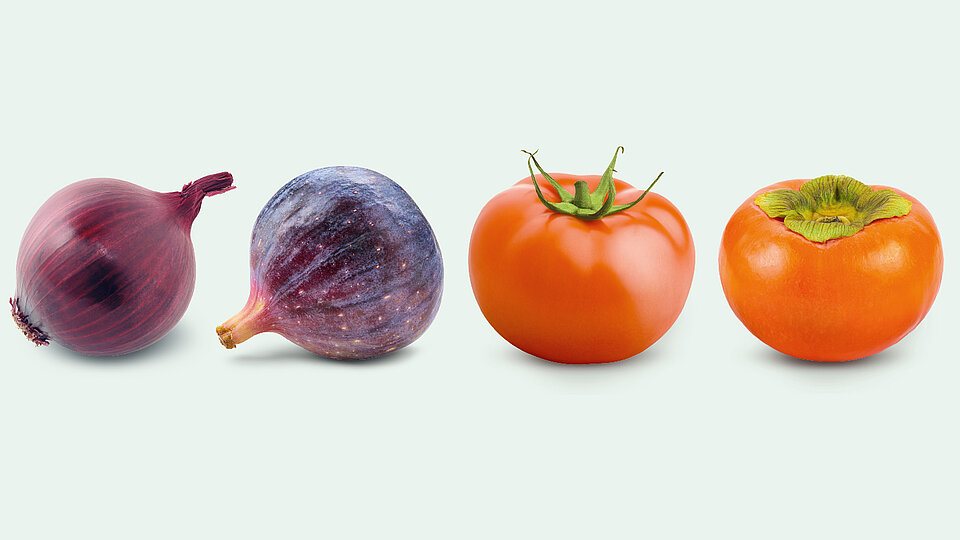
Path-breaking research by women (a selection)
Thousands of excellent women in the Humboldt Network worldwide conduct research that helps to ensure a more sustainable future, drive progress in medicine and health, and develop innovative new technologies. Here are three pioneers in the Humboldt Network:


